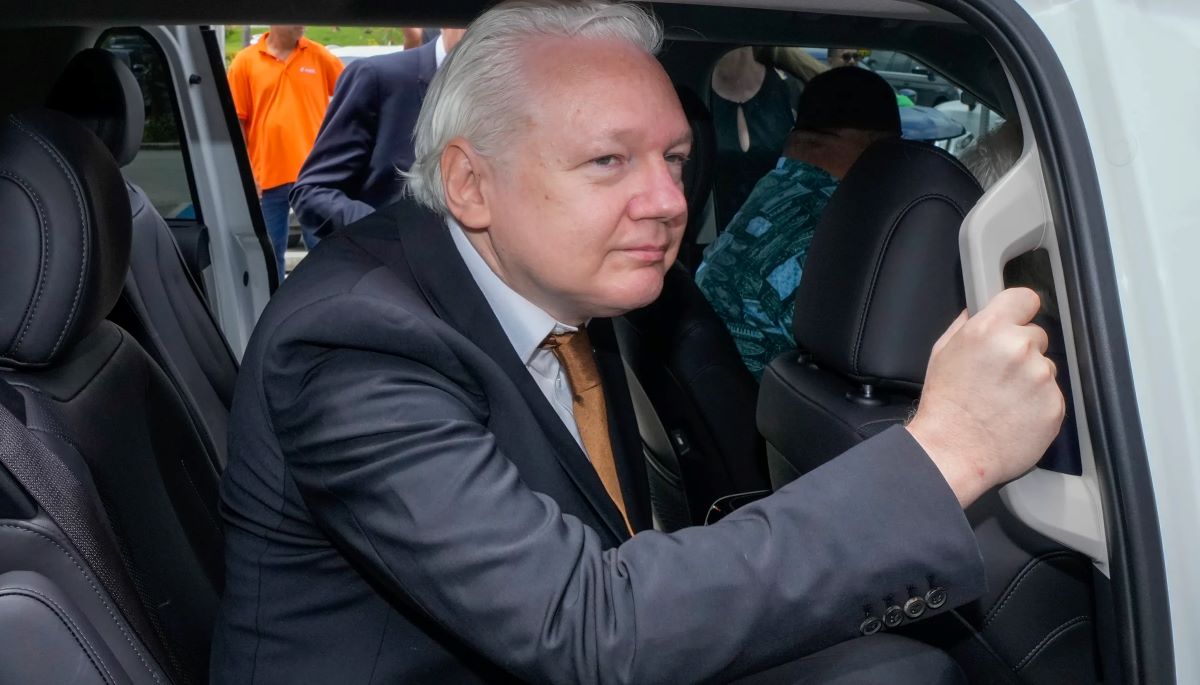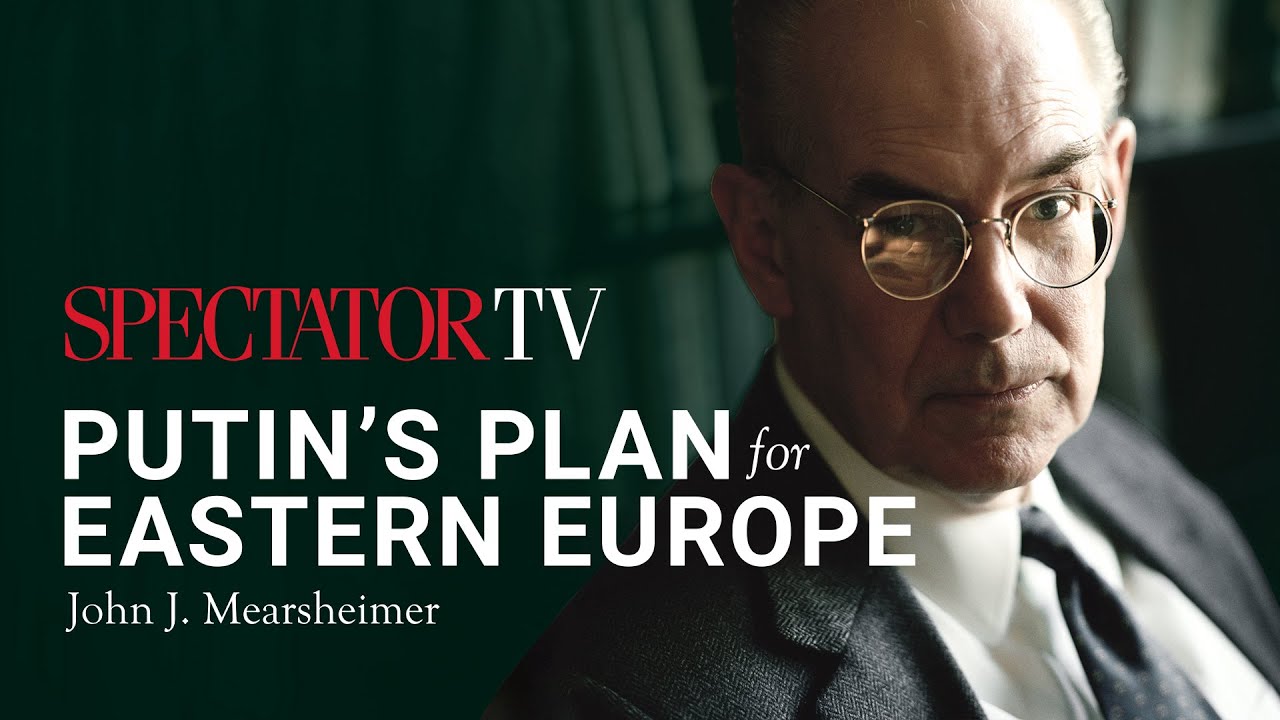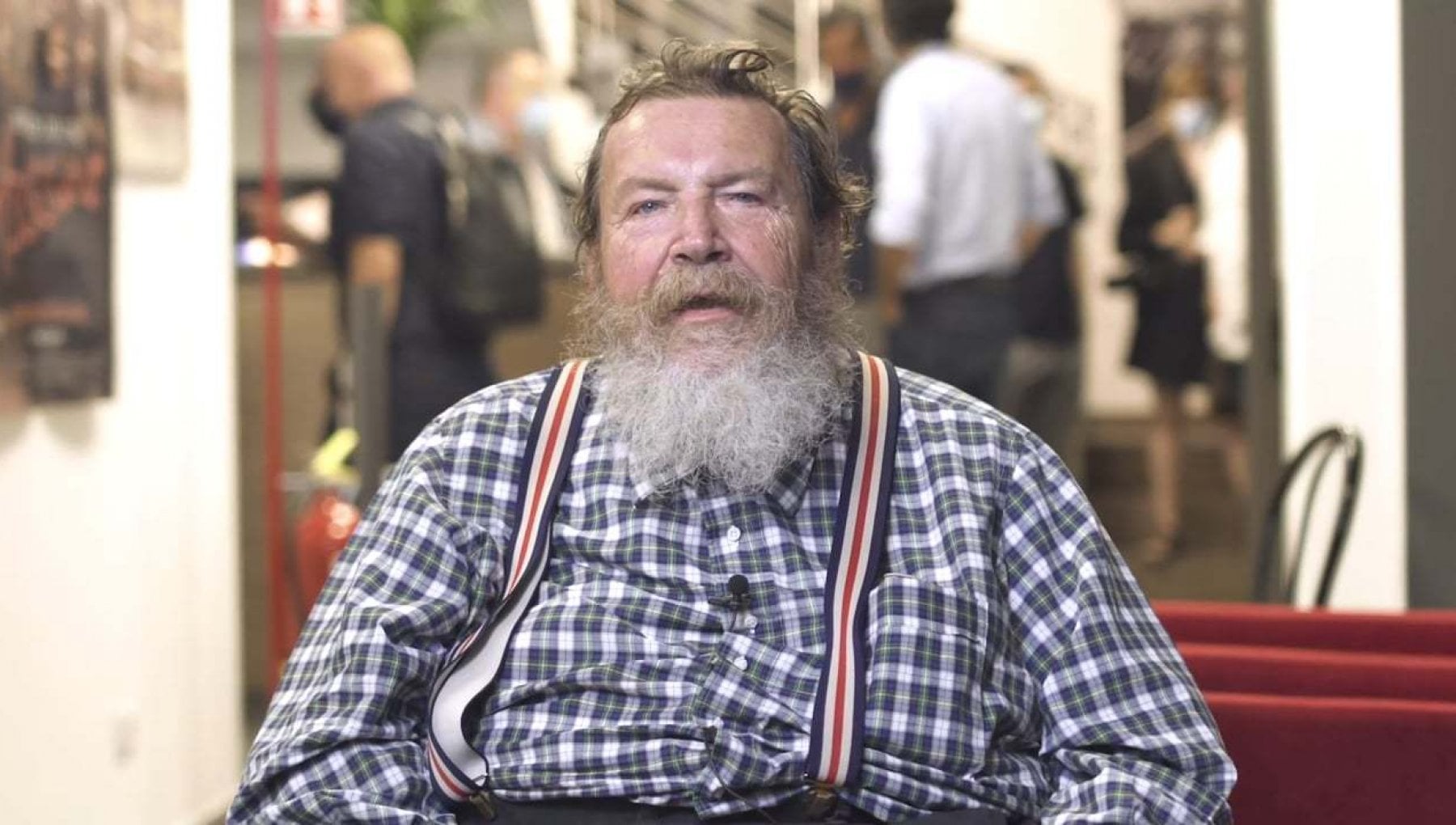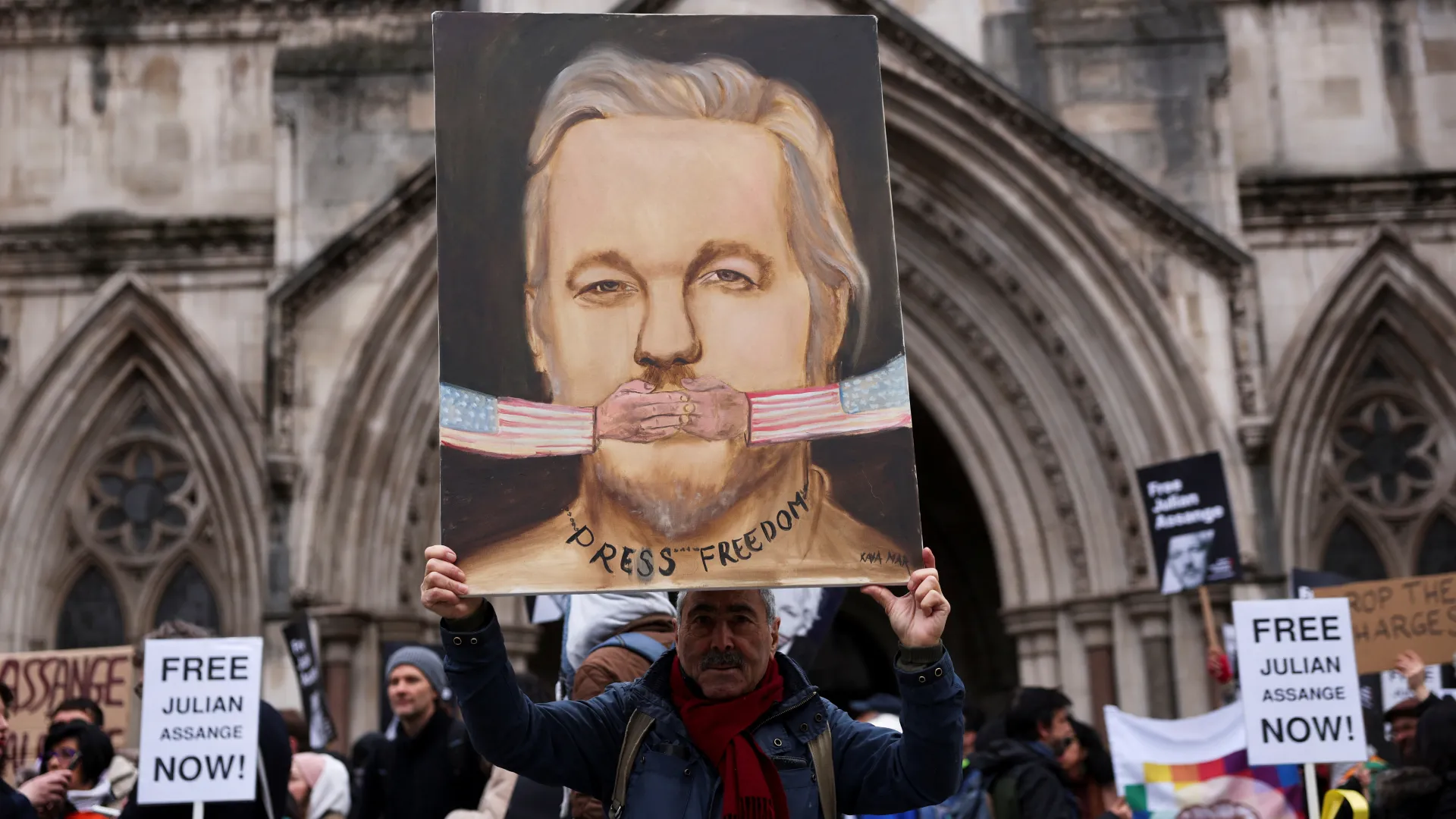Published on June 25, 2024 (YouTube)
Russell: Julian Assange has been released in a way that seems epocal and extraordinary, and many people will see it as a victory. Indeed, on a human level, on a personal level, it is a victory. He’s united with Stella, his wife, and his children once more. That’s extraordinary. Seeing the images of Julian Assange getting on a jet and looking at his face, wondering what he must be feeling, is kind of exciting and inspiring.
It’s curious that he has had to plead guilty in a bargain with the United States to the crime of espionage, making him the first journalist to be successfully prosecuted with that. I think that’s a fact of the matter. There will be more details after he reaches a Pacific island where there will be a trial and presumably a sentencing equivalent to the time he spent in Belmarsh without one.
You might be wondering why Julian Assange is guilty of espionage. You might be wondering why Julian Assange is guilty of anything. This is what Julian Assange is guilty of. People will say stuff like “Julian Assange is guilty of putting American troops and service personnel in danger.” That’s the kind of thing people will say. But this is what Julian Assange is actually guilty of. Pay attention to this and think for a moment. I wonder when it was that Julian Assange was saying this. I’m not sure, but it’s probably like 10 years ago because he wasn’t in the Ecuadorian Embassy when he was saying it, and he wasn’t in Belmarsh when he was saying it, and it’s about 7 years accumulatively that he’s been in one of those places, maybe even a little longer.
We live in a space now where perhaps all of us that occupy these spaces are, in a sense, the progeny of the likes of those early outliers in those spaces. You might say you choose a hero. Maybe you were really into the David Icke perspective. Maybe you love Noam Chomsky or Naomi Klein. Maybe you were really into Alex Jones 30 years deep. Or maybe you are a fan of Julian Assange and what he has done and what he’s subsequently been accused of.
Have a look at this clip of Julian Assange. This is the Julian Assange that they jailed.
Julian Assange: Because the goal is not to completely subjugate Afghanistan. The goal is to use Afghanistan to wash money out of the tax bases of the United States, out of the tax bases of European countries through Afghanistan and back into the hands of a transnational security. That is the goal, i.e., the goal is to have an endless war, not a successful war.
Russell: Now, what Julian Assange describes in that clip is something that we all well now understand. There are provocations and causes for international wars that drain the coffers of independent sovereign nations. Taxpayers fund these wars. It seems that the money loops around and somehow ends up in the hands of the military-industrial complex. Do you imagine that there are similarities between the Afghanistan conflict and the Ukraine-Russia conflict and what’s happening across the Middle East right now? Let me know in the comments and the chat.
As well as declaring publicly, as well as providing evidence thanks to the bravery of Chelsea Manning, that the American military, in particular, were behaving corruptly—and let’s call it what it was, illegally—he also said stuff like this. This is another defining Julian Assange statement:
What’s the difference between Mark Zuckerberg and me? says Assange. I give private information on corporations to you for free, and I’m a villain. Zuckerberg gives your private information to corporations for money, and he’s Man of the Year.
Russell: Julian Assange is free for now, and across the internet, you can see numerous people posting how excited they are, how pleased they are, and yet what an injustice it remains. Although there is a curious post from Mike Pence. Now, have a look at this:
Julian Assange endangered the lives of our troops in a time of war and should have been prosecuted to the fullest extent of the law. The Biden administration’s plea deal with Assange is a miscarriage of justice and dishonors the service and sacrifice of the men and women of our armed forces and their families. There should be no plea deals to avoid prison for anyone that endangers the security of our military or even the national security of the United States, ever.
Russell: What’s extraordinary about this, primarily, is that this is the perspective that prevails. That is the idea that’s led to Julian Assange being prosecuted successfully under the Espionage Act and having been incarcerated without trial for the last seven years. Mike Pence’s tone-deaf, out-of-tune madness, which you could unpack in myriad ways. You could say, for example, well, isn’t it pretty extraordinary that 22 American service personnel take their own lives every single day? Is that an indication that perhaps there are other ways we could honor and support the troops?
There are military families and military veterans watching this right now. You know how you feel about your government. You know how you feel about the United States and its relationship with large corporations and its plainly globalist agenda. And you know whose side Julian Assange was on. And it’s your side. And that’s the reason Julian Assange was incarcerated in the way that he was.
What’s astonishing about Mike Pence’s remarks is even though to you and to me, and surely to any right-thinking person, they would seem like the rantings of a lunatic, they are, in effect, the imperative and imprint of the mind of the establishment. And they are not theoretical. That’s how Assange was treated, and it’s using that mentality that people can perpetuate those ideas.
You can’t speak out against the nation. Why, the average service personnel member would be put into all sorts of jeopardy. How long will we allow them to divide us on that basis? I would say not for a lot longer, and that’s thanks primarily to heroes like Julian Assange. There are others, but Julian Assange today in particular we should celebrate.
I would rather hear the opinion of no one more than that of Coast Guy. That’s how you can follow him on X. Neil Oliver, Neil, welcome in earnest to the show.
Neil Oliver: Thank you very much, Russell. Great to hear you, great to hear your thoughts on Julian Assange.
Russell: What do you feel we can learn, not only from the imprisonment of Assange, which I’m sure you and I are guessing alignment on, but why is he being released now? Do you think it’s connected to the November elections in the United States? And do you think that it’s connected even to the forthcoming debates?
Neil Oliver: Well, I think it’s hard to imagine that it wasn’t done without some kind of political expediency. I’m sure it is to do with the fact that we’re in the rundown to elections in November, and everyone involved is trying to appeal to their base and to develop an idea in the public mind of the kind of people that they are. Joe Biden and his team, I’m sure they had to get this prosecution because otherwise, I can imagine there might be the possibility of appeals and demands for compensation for all that wrongful imprisonment without trial. But I suppose if they get Julian Assange to plead guilty to something, that lets them jail him, as it were, reverse engineer a jail sentence so that they can justify that. But I mean, more than anything else, Trudy, my wife, and I were talking about it this morning. It’s 15 years that this has been going on for him, this detention of one form or another. My youngest child is 16 now. I must have been about 42 when Julian Assange began this unbelievable odyssey of detention. And to lose that much of your life, when I think that I’ve watched my little boy, my youngest, grow up from when he first appeared to today, he’s in fifth year in high school. And Julian Assange has spent all of that time either in the embassy or in Belmarsh. It’s just unthinkable as a fellow human being, almost regardless of what he was accused of. I just find that an unthinkable prospect, because you can’t get that back. You don’t get those years back. It has all of the implications that everyone has talked about for the longest time about what it means for freedom of speech. The idea that a publisher—because he didn’t hack that information; he was provided with information, and he then published it, which is what publishers do—and the fact that he was singled out when a lot of the same content was published by other organs and other outlets, and nothing happened to them. The whole weight of the attack against the publication of that material fell on the shoulders of one man. Everything about it just absolutely reeks of injustice. It reeks of a threat to freedom of speech. It raises all sorts of questions about democracy, all of these things. But again, basically, I just think about if I had missed the last 15 years of my life being stuck in one box or another, I don’t know how you retain your sanity and how you get beyond it.
Russell: Some people would argue, Neil, that we do spend our lives moving from box to box, vehicle to room, incarcerated in many tangential and perhaps abstract ways, which are certainly preferable to the very real ways that Julian Assange was incarcerated in Belmarsh. One of the aspects of this matter that intrigues me is the way that Julian Assange went from a kind of darling of the legacy media, backed by the Guardian, New York Times, Der Spiegel, all those things. He was a kind of princeling, a radical. I remember, prior in particular to the accusations of sexual assault that mysteriously emerged, he was seen as a kind of, you know, an icon, broadly speaking, of, if not the left, but I would say the left—an anti-establishment figure. Politics has changed so much in that time. He’s again one of those figures that you can use to track the way that the culture more broadly has changed. Assange was abandoned by the left. He was abandoned by the legacy media. I’m not saying everyone on the left. I know, for example, someone like Jeremy Corbyn has always been very outspoken and supportive of Assange, so that’s too much of a generalization. But what do you think it tells us that all of those legacy media outlets turned their back on Assange? Was that a pivotal moment? Was that one of the moments when the legacy media was once more resolutely co-opted by the establishment, chided and cowed by the power of the establishment? I think some of us will recall, like, that I think MI5 went into the Guardian offices with, like, sort of jigsaws and axe grinders and just, you know, terrified the legacy media. So, is Julian Assange a pivotal figure in the sort of breakdown of the kind of journalism that he and Greenwald at that time—and who was similarly a darling of the left—like, was it a pivotal moment not just for him, not just for justice, not just for war reporting, but somehow for our whole culture, Neil?
Neil Oliver: I think it revealed a reality that was there for a long time, but that had been convenient or it had been possible or it had been expedient to keep out of sight. And then the time came, I think, when those days were over. I’d also mention George Galloway was a trenchant supporter of Julian right from the very beginning. You know, as you say, there were various voices—not enough—and I can’t claim it. I was inexcusably oblivious to a lot of it for the longest time. But there were voices out there who were doing the right thing. But I think what was exposed, I genuinely think what was exposed, was that we are—and for an unknown, unspecified period, we’ve been—in the grip of a crime syndicate or competing crime syndicates. And when it finally suited, when those entities, those syndicates were confident enough that they could just ride roughshod, then they did. And the way in which Julian Assange was made a scapegoat and that he was targeted and the way that he was bullied and vilified, I think it demonstrated a way in which those crime syndicates had decided that, you know, we don’t really need to pretend to be subject to democracy here. We don’t really need to pretend anymore that we will defend freedom and we will defend freedom of speech. I think, to some extent, it was an indication that those entities had decided, “you know, I think we can go in hard. I think the time might be coming when we’ll show the people that if we need to get something done, we’ll just do it, and we will ride roughshod over notions of justice and fair trial and all of the rest of it.” And I think Julian Assange was just incredibly unlucky in that respect, in that he happened to be the right person in the right place, and he suited an objective, which was for those criminal syndicates to just start throwing their weight around and say, “it’s a new sheriff in town, and it’s our way or the highway.”
Russell: I think you’re right in a number of ways. Also significantly in the way that various figures, symbols, and ideas appear to line up appropriately as tectonic plates shift. As the technology became available for publishing to reach the level it did, firstly, it favored journalism and the type of journalism that may, as far as I know, have once emerged from institutions like the New York Times and others. But now that kind of integrity has migrated elsewhere, and Julian Assange was the sort of pivotal cartilage figure that connected those two worlds.
Neil Oliver: I think he also crystallized a moment for everyone by what he was doing, because I’ve wondered for a long time if the long-term consequences of the internet were foreseen. You know, back in the ’60s and ’70s, when between MIT and DARPA the whole thing was set in motion, I do wonder at the extent to which the unintended consequences were foreseen. And I think by the time of Julian Assange and WikiLeaks, it had become apparent to those crime syndicates that actually, we thought that the internet was just going to be something that would serve us, that would enable us to harvest all the data, harvest all the information about people, you know, work towards 24-hour-a-day surveillance of people, know more about them than they know about themselves, be able to get more information than previous iterations of the CIA and the FBI and anybody else might have ever dreamt of gathering about the general population. But then I think it was unforeseen that there was another flip side to the internet, which favored the likes of us, and Julian Assange was one of the—and WikiLeaks—they were one of the first people to make plain the way in which the internet could be used against them, that it could be turned back on them, and very quickly, I think it was realized, “you know what, we have got to get a grip on this, and we will make a point with this guy.”
Russell: Hey, thanks for watching. If you want to see more uncensored content where free speech can flourish, join our live stream. Click the link right here to watch the next video. If you want to become a member of a growing movement, download the Rumble app, and you’ll be informed every time we make a new piece of content. Stay free.




